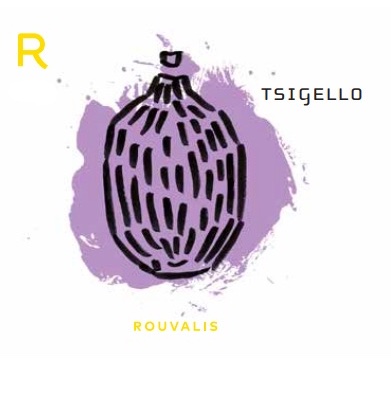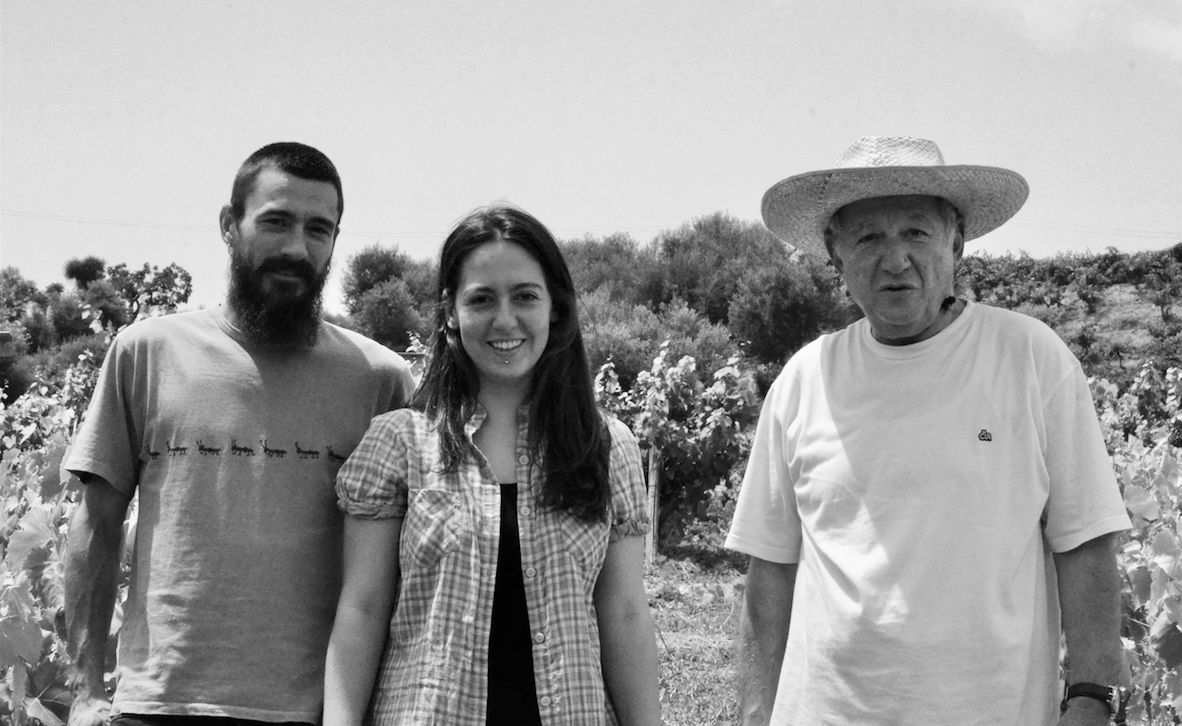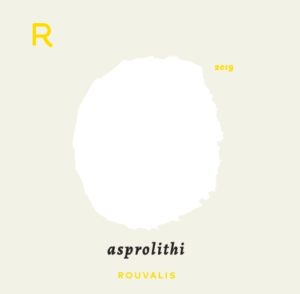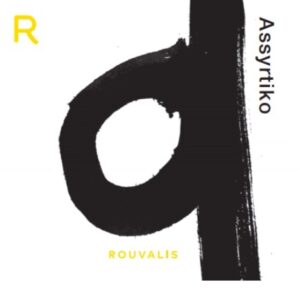
Tsigello
| Country | Greece |
|---|---|
| Region | Peloponnese |
| Producer | Rouvalis |
| Size | 750mL |
| Style | Red |
| Practices | Organic |
| Grapes | Tsigello |
| Other Features | Vegan, Unfiltered |
100% Tsigello, a high-quality, low-yielding clone of the better known Mavrodaphne (Black Laurel). Another clone is Renio, which was promoted by nurseries after the phylloxera and generate higher yields. Traditionally the two clones are inter-planted and used together, however they are very easy to distinguish as they differ in terms of leaves and grapes. Rouvalis was the first winery where Tsigello has been planted and vinified separately, with success: 2017 was the first vintage. Tsigello is not recorded in the official list of grape varieties, so the Rouvalis thought of using this name for the cuvée, to give the clone proper credit. Tsigello is native to the mountainous slopes of Aigialeia in northern Peloponnese and the vineyards are located at an altitude of 500 to 650 meters (1640 to 2130 feet) above sea level, facing the Corinthian gulf. The soils are mainly sandy loam and sandy clay loam on a bedrock of cohesive conglomerates with sands. The yields are never above 60hl/ha. Their various advantages (north facing aspect, overlooking at the sea, high altitude, well-drained slopes and mountains-barriers that protect them from the hot summer winds) are the most critical factors for high quality fruit.
The grapes are harvested in small crates at the beginning of September and transported to the gravity fed winery, where the grapes are cooled down and stay on the skins for 3 days. It is followed by a classic controlled fermentation in stainless steel tanks and malolactic fermentation. Finally, the wine is aged for five months in 85% hand-made clay amphoras – a departure from the tradition of aging Mavrodaphne in oak – which tampers its bold tannins and tend to heighten the top notes, and the rest in 3rd use barrels. Theodora and Antonio Ruiz Pañego worked a lot with these 160L amphoras in Burgundy for Pinot Noir and they realized they would showcase the beautiful primary aromas of Tsigello and give the wine complexity and elegance without oak influence. The wine is bottled unfiltered.
Delightful nose of vibrantly fresh red berry fruits and an intriguing herbaceous quality. An intensely aromatic, full-bodied yet lifted dry red with notes of red fruits, pepper, rosemary, bay leaf and eucalyptus. Hints of chocolate. 13% alcohol.
About the Producer

Αntonio Ruiz Pañego, Theodora Rouvalis, Angelos Rouvalis.
Rouvalis Winery was founded in 1990 by Angelos Rouvalis. He comes from a vinegrowing family of Aigion, studied in Bordeaux, and graduated to become an enologist. The winery was one of the pioneering establishments that contributed to improving the quality of Greek wines in the nineties. The gravity fed winery was built in 1994 and Angelos started his first experimental vineyard the same year. Today, the winery is run by Theodora Rouvalis and her partner, Αntonio Ruiz Pañego. Theodora and Antonio are both trained oenologists and they gathered professional experience working in Chile and New Zealand, before moving to Burgundy. They lived in Morey St Denis for almost 3 years (2013-2016). Antonio worked at Domaine Frédéric Magnien and Theodora completed her master in Viticulture while working at Clos de Tart. They came back to Greece in 2016 to take over Theodora’s family winery. They aim to produce authentic, harmonious and value-oriented wines that express the unique terroir of the slopes of Aigialeia.
The slopes of Aigialeia are situated in the northern Peloponnese, about 170km (105 miles) west of Athens, in the mountainous region above the town of Aigion. They are uniquely beautiful, terraced vineyards that overlook the Corinthian Gulf and they constitute one of the most interesting vinicultural regions in the world:
- they are one of the very few north-facing regions in Greece (because of the Corinthian Gulf fault) so the vines benefit from the cooling northern breezes of summer.
- the vineyards are protected from the hot summer winds coming from the south by the high east-west mountain ridge of central Peloponnese that acts as a natural barrier.
- the soil is fertile, due to the old geological deposits, and it is well drained because of its inclination.
- the vineyards are at high altitude (500 to 1050 metres - 1640 to 3445 feet - above sea level), with an important difference in temperatures between day and night - a condition for high quality fruit in a hot climate.
- the region benefits from the high rainfalls of western Greece as well as from the climate of the Corinthian Gulf.
- the slopes are very steep and near to the sea, and the air currents prevent diseases to develop, creating conditions favorable to organic viticulture.
Rouvalis Winery, in addition to its 7ha of estate vineyards, has long-standing contracts with pioneering vine growers in some of the best-suited areas, among which Greka, Arahova, Pyrgaki, Fteri and Trapeza. The grape varieties cultivated are both indigenous - Roditis, Malagousia, Assyrtiko, Mavrodaphne, Malvasia and Kydonitsa - and international: Sauvignon Blanc, Chardonnay, Riesling, Viognier, Merlot, Cabernet Sauvignon and Syrah. The total production is 150,000 bottles per year.
Farming practices: organic.
Amphoras: While Antonio was at Domaine Frédéric Magnien, they started to use jars for some of the best Grand Cru, with amazing results: the wines were very expressive on the nose, with both precision and power on the palate. Back in Greece, Antonio and Theodora fell in love with Tsigello, a high-quality clone of Mavrodaphne with lively notes of juicy black fruit and herbs. They wanted to showcase the purity of the aromas while managing the tannins. Amphoras were the perfect vessel for the task. Clay is porous, like oak, so it does allow for some oxygen. It gives the wine a deep and rich texture, but it’s a neutral material (if made correctly) that won’t impart any additional flavors. They settled on 160l jars made from clay and handcrafted in France specifically for wine aging, using the same closures as barrels. The 2017 Tsigello was their first attempt, and a successful one. They purchased more amphoras but still use oak barrels, which give the wine depth and finish. They believe the best is to combine both, and they usually use around 10% second-use oak for their cuvées. They are now experimenting with their Kydonitsa, a sweet wine made from grapes dried in the sun.
Rouvalis
Yiannis Karakasis MW Greek wine explained 2024


related products
-
Rouvalis
Patras White – Roditis Asprolithi
-
Rouvalis
Aigialeia White – Assyrtiko


